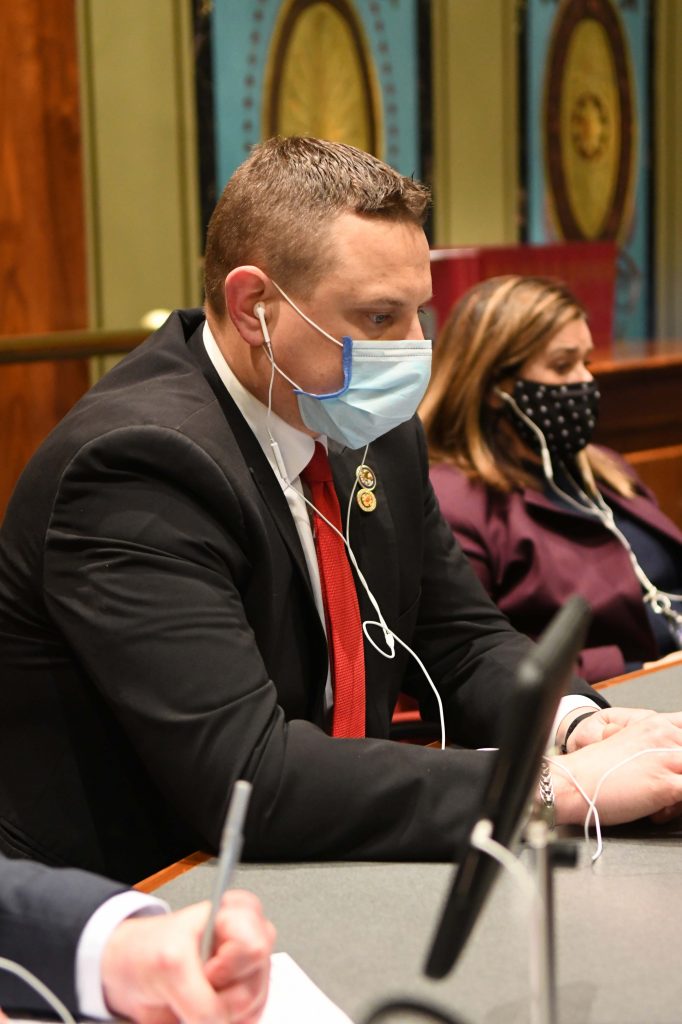 State Senator Neil Anderson has signed on as a Chief Co-Sponsor of comprehensive ethics reform legislation that seeks to hold corrupt politicians more accountable. The legislation was filed in Springfield on Monday as Amendment #1 to Senate Bill 1350, and comes following weeks of delays by the Majority Party to pass ethics legislation.
State Senator Neil Anderson has signed on as a Chief Co-Sponsor of comprehensive ethics reform legislation that seeks to hold corrupt politicians more accountable. The legislation was filed in Springfield on Monday as Amendment #1 to Senate Bill 1350, and comes following weeks of delays by the Majority Party to pass ethics legislation.
“As the spring legislative session is coming to a close, the Senate Ethics Committee has ignored numerous bills that would weed out corruption in our state,” said Sen. Anderson. “To date, only one Senate Ethics Committee hearing has been held all year, and that was to discuss one proposal: Senate Bill 4. Since then, we have seen no movement with that legislation.
“With two weeks left of session, time is running out. That’s why I joined my colleagues to introduce legislation that combines our most meaningful bills into one package to bring true ethics reform to Illinois.
“The people of Illinois are tired of waiting for Springfield to address the state’s corruption problems and they’re certainly tired of reading headlines about another Illinois politician charged with corruption.”
Senate Bill 1350 would do the following:
- Empower the Illinois Attorney General (AG) to use a statewide grand jury to investigate cases of public corruption instead of depending on the federal government and FBI to investigate and issue charges.
- Amend the State RICO law to provide state’s attorneys the authority to use wiretaps to investigate crimes of public corruption. Under current Illinois law, county prosecutors cannot even obtain judicial approval for a wiretap in corruption cases.
- Provide the Illinois Legislative Inspector General (LIG) greater autonomy to independently investigate allegations of political wrong-doing, by giving the LIG the ability to investigate and issue subpoenas without prior consent of the Legislative Ethics Commission (LEC), a panel comprised of sitting lawmakers. Current law requires the panel made up of legislators to authorize any investigation of their fellow legislators.
- Ban legislators from lobbying other branches of state government or units of local government for compensation, and also require that legislators wait at least one full year, or until the end of the current General Assembly, between when they leave office and when they become a lobbyist – whichever is longer.
- Prohibit a legislator from leaving office and continuing to use their campaign fund if the legislator becomes a lobbyist or is appointed to an office that is confirmed by the Senate.
- Update the statement of economic interest requirements to enhance the disclosure of potential conflicts of interest.
- Prohibit political fundraising in person in Sangamon County and virtually throughout the state the day immediately before, during, or after session.

